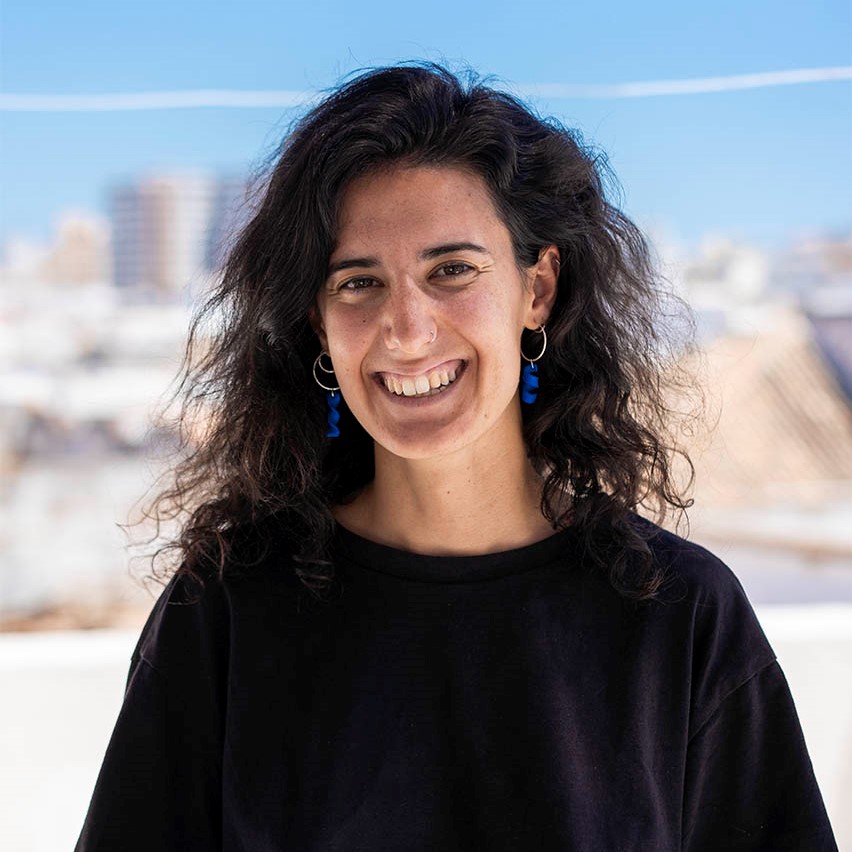As a digital nomad, what are some of the challenges you face and how do you overcome them?
To be honest, now, I’m very comfortable and find myself in the conditions I was trying to find for a long time. The challenging part is when you first decide you want to be a digital nomad and you need to find a way to do so. So for me, the challenge was to find a job with no much working experience beyond my previous internships in the middle of a pandemic. All the companies had to reorganize, and some fired a lot of people. How do you find a job at that moment? If you have been working for five years before Covid, it’s probably easier. But it’s not very easy to start finding jobs when you don’t have experience adding the circumstances. I think that was the challenge. Because you cannot be very picky. I first needed to find a place that allowed me to work from Portugal, so I did and it was cool, but not perfect because I would have to go back to Spain at some point. Then I found a place that allowed me to work remotely, but I couldn’t leave my country, which was Spain at that moment. So that wasn’t ideal either. Then I finally started to work for a company that allows me to be anywhere I want, and that feels just right. That was the challenge: to go through all that process of finding the job with the conditions you want. For me, it’s very important and amazing that I can do this Design for life, but I would say that 70% of the rest are the conditions, the people you do it with and how you do it. I wouldn’t be happy if I just had a Design job, but the conditions and company didn’t match my working philosophy, which is: If I want to be here now, why wouldn’t I if I can do my job remotely?
What advice would you give to aspiring digital nomads?
I think everyone should try. If you can, you should do it. I’m telling it to friends, I told my sister, I’m recommending it to everyone. Actually, I wish I did more after. I had to focus on my career when I finished, but who knows, maybe one time I’ll just apply again to one of these programs. Because it’s very nice and you meet lovely people!
European volunteering is discovering a full package. Foreign people, being in a different city, share an apartment with strangers probably… How was your experience?
When I started volunteering at Contextos, there were not many Covid restrictions. So we had a lot of plans to do events, interviews and projects such as People of Faro — more involving being in contact with people. When Covid second way started, we were four people stuck in the same house, in the center of the sunny Faro! We couldn’t go out. You suddenly find yourself locked up with 4/3 people. It is quite interesting because then dynamics change inside the house. You’re together all day and you start to organize a bit better how you’re gonna do things. Because otherwise it’s just gonna end up in conflict! I think we did pretty alright. For me it wasn’t as difficult because I was doing digital work. But let’s say for the photographer it was a bit more complicated because we had a lot of days of not having work. You start with the intention to help and do a lot of things, but then you find yourself not able to. So, we started to have ideas. Internal workshops inside our house for other people to join with the cameras. And we will do things like this to keep things going. We couldn’t do this outside, but at least we could teach each other things that we could apply later on in the future.
You needed even more creativity, right?
Yes! We started to make a magazine, creative workshops and lots of things inside the house. It was a bit complicated at first, but we knew we were in a pandemic, and we knew that something like this could happen. So still, with all the problems we had, I don’t regret anything. I think it was a great idea to come here. We were still able to go out for exercise. So going out for running or cycling in Faro, when Faro is completely empty it’s impacting. In a way you feel very lucky. So it was a nice experience in a way, considering the circumstances. You can always find something bright everywhere. Even in a difficult time. So we were still doing things in a different way, I guess. How else can it be done when there’s no people allowed in the streets?
Can you share a song that reminds you of the city of Faro, for us to put on our Spotify playlist?
The song that I was listening to all the time when I was here. And it’s still one of my favorite songs now. It’s actually from French DJs: “Gengis” by Polo & Pan.


